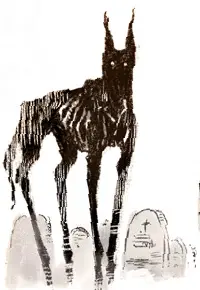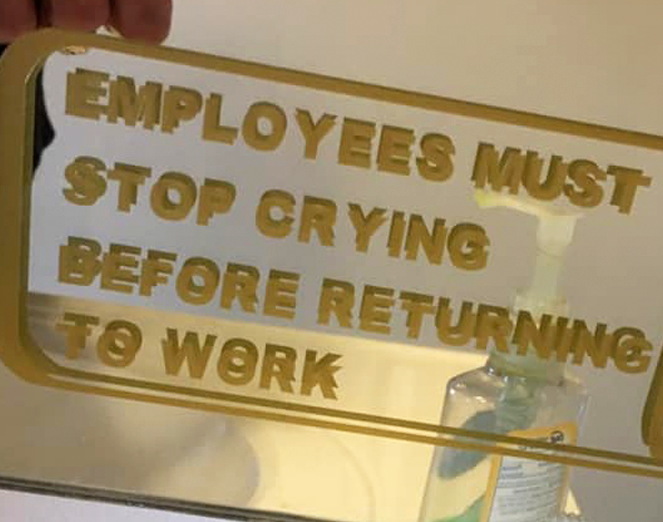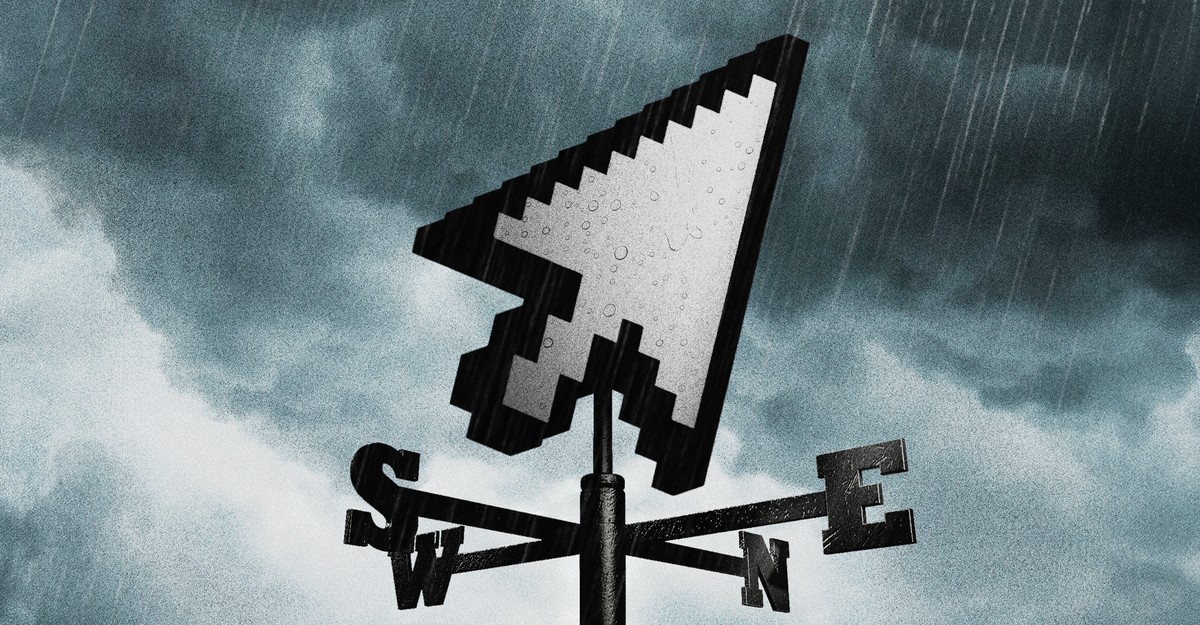The truth is, it’s getting harder to describe the extent to which a meaningful percentage of Americans have dissociated from reality. As Hurricane Milton churned across the Gulf of Mexico last night, I saw an onslaught of outright conspiracy theorizing and utter nonsense racking up millions of views across the internet. The posts would be laughable if they weren’t taken by many people as gospel. Among them: Infowars’ Alex Jones, who claimed that Hurricanes Milton and Helene were “weather weapons” unleashed on the East Coast by the U.S. government, and “truth seeker” accounts on X that posted photos of condensation trails in the sky to baselessly allege that the government was “spraying Florida ahead of Hurricane Milton” in order to ensure maximum rainfall, “just like they did over Asheville!”
As Milton made landfall, causing a series of tornados, a verified account on X reposted a TikTok video of a massive funnel cloud with the caption “WHAT IS HAPPENING TO FLORIDA?!” The clip, which was eventually removed but had been viewed 662,000 times as of yesterday evening, turned out to be from a video of a CGI tornado that was originally published months ago. Scrolling through these platforms, watching them fill with false information, harebrained theories, and doctored images—all while panicked residents boarded up their houses, struggled to evacuate, and prayed that their worldly possessions wouldn’t be obliterated overnight—offered a portrait of American discourse almost too bleak to reckon with head-on.
Even in a decade marred by online grifters, shameless politicians, and an alternative right-wing-media complex pushing anti-science fringe theories, the events of the past few weeks stand out for their depravity and nihilism. As two catastrophic storms upended American cities, a patchwork network of influencers and fake-news peddlers have done their best to sow distrust, stoke resentment, and interfere with relief efforts. But this is more than just a misinformation crisis. To watch as real information is overwhelmed by crank theories and public servants battle death threats is to confront two alarming facts: first, that a durable ecosystem exists to ensconce citizens in an alternate reality, and second, that the people consuming and amplifying those lies are not helpless dupes but willing participants…
… “The primary use of ‘misinformation’ is not to change the beliefs of other people at all. Instead, the vast majority of misinformation is offered as a service for people to maintain their beliefs in face of overwhelming evidence to the contrary”…
… As one dispirited meteorologist wrote on X this week, “Murdering meteorologists won’t stop hurricanes.” She followed with: “I can’t believe I just had to type that”…



Facebook doesn’t cause physical dependency on a chemical like opioids or even benzos. Being “”“addicted”“” to Facebook is like being “”“addicted”“” to weed.
They are different kinds of addictions. You can very much be addicted to the lifestyle and coping mechanism of weed. Hell you can be addicted to going to the gym or shopping. People could very much be addicted to something that is so core to their identity.
Yup, but that’s not the same. Alcohol withdrawals can kill you. Nicotine/Opioid/Benzo withdrawals can seriously hurt you. With weed or tiktok? It’s just hard.
Yeah, not arguing lethality, but it has been studied that weed can be addictive. Either way, my point was that people can be addicted to almost anything. Pair that with mental issues and you can have very serious issues with removing the addiction.
Can be addictive psychologically, so can masturbation or anything else. The answer is to just stop. Whole different ballgame from actual physucal addiction.
Saying just stop isn’t feasible. Psychological addictions become physical. Some people want to stop but can’t, that’s why it’s an addiction. Saying the answer is “just stop” honestly shows a misunderstanding of addictions, the reason they happen, and their effects.
I’ve been addicted to multiple drugs multiple times, including multiple at once.
The reason it was difficult to stop was because I physically could not function without them due to a chemical imbalance created by their consumption. I took them to cope with being fired, and potentially deported back to a transphobic country from a job I couldn’t stand, yet had to stay in for a year on barely living wage, and as harm reduction for the bottles of alcohol I used to down every day.
I think I got a pretty good idea actually.
If you want to stop, then figure out how to stop, then do that, and then you stop. That’s all there is to it really.
The truth is if you’re struggling with the first, it’s because you have no reason to stop, or the reason you have isn’t good enough. At that point you won’t be able to start or stop anything, no matter whether it’s a soft habit like picking your nose or being psychologically addicted to any other sort of dopamine.
With the second, that’s the physical addiction part, and it can get pretty complicated.
The reason I stopped was because I had to stop to not die and I wanted to live to finish transitioning, because I hated gender dysphoria and wanted to live to see the disorder perish in a very personal and petty way for how much of my childhood it fucked up. I now have.
The hardest part about the second aspect - the logistics of quitting after finding a reason to do so wasn’t the psychobabble unscientific “muh willpower” christian work ethic capitalist bootstrap mumbo jumbo, it was finding decent information on how to taper to minimize the severity of withdrawals and seizures and the fact I had to continue to resort to illegal uncontrolled means of acquiring medication for managing my taper to avoid seizures, collapsing and smashing my skull open to amusement of fellow man condemned to the morning commute.
Similarly with amphetamine I still had to go to work, which unfortunately at the time required me to be awake, yet no medical professional will tell you what will work - pounding monsters and vaping like it’s the goddamn industrial revolution.
Polluting the term addiction - the struggle of those who’s chemical imbalance due to substance abuse has their very body turn against them in cruel and unusual ways with the experience of someone who spends too much on avocado toast is watering down and cheapening the seriousness of the problem.
It was difficult finding information on how to unclench my jaw at night, whether I’m going too fast or too slow and looking for the best sources, knowing full well that the violence monopolists and their lapdog pharmabro complex filled with religious nutjobs (UK, so not trumpists) and nurses recommending bleach enemas would do everything they could to stop me if I so much as peeped about my struggles and the rest, brainwashed as they are would go off about self-helpyourself-to-my-pyramid-scheme guru book on amazon dot com or resort to quiet condemnation and pride that they made the right™️ decisions.
What helped me was DNMs, drug forums, suicide forums (they defended the argument for suicide badly and were therefore lame) and crypto enthusiasts.
Ultimately with addiction it comes down to two things:
If either of these are a no, you will fail. The first is hard to find in our fucked world so I don’t blame anyone, and it won’t get any easier until the world we live in is worth engaging in with more than the comfort of chilling out an amph sesh with some kpins and a dihydrocodeine or ten.
Ahhhbb ok. So you just want to gatekeep the term addiction because you think other people with addictions “don’t have serious problems” and have never had a non chemical addiction so you can’t relate.
Kinda fucked if you ask me or most of the psychology world.
Yes. It’s like gatekeeping the term cancer because I think people who don’t have cancer shouldn’t claim they have cancer because they sorta maybe feel like they do. They have problems, to be sure, but not that problem.
I had “”““addictions””“” aplenty to all sorts of things and negative habits of all kinds, it is simply an entirely different thing and should not be labeled as addiction because it is just not the same thing, and words have meanings outside of the psychology world.
Most of the psychology world has nothing to do with addiction (a societal and physical problem) and is a pseudo-scientific scam invented by the medical complex operating under the premise of capitalist realism and that if you just deluded yourself into believing things are okay, they will be okay, but they are not, and in reality most unhappiness is due to poor material circumstances.
Lately when an article or comment interests me I’ve been attempting to dig into it and make sure my beliefs hold water, I like to be skeptical but informed. Here’s some stuff I found and it’s here if you’re feeling open minded or curious.
Canadian Gov on weed and addiction
Communities of people who struggle to stop using cannabis. Many first hand accounts from long term users: https://old.reddit.com/r/leaves/ https://old.reddit.com/r/addiction/ https://forum.weedless.org/
A podcast with Mathew Hill
Mathew Hill’s lab is not against cannabis. It’s focus is on understanding THC in the body.